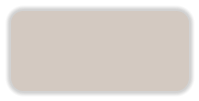Their bodies are buried in peace; but their names liveth for evermore.
Their Duty Done
A tribute to the men and women of the East Gippsland Region who Died
as a result of their participation in World War One : 1914 -1919




129 Sergeant Harold David Collins - Picnic Point
Killed in Action 29 July 1916
David and Caroline Collins of Bairnsdale had seven children with Harold being the
eldest. He graduated from the School of Mines at Bairnsdale in Metallurgy and
obtained a position as an assayer at the Broken Hill works in Port Pirie, South
Australia. He advanced rapidly and then went to the Woolwich Radium Works at
Sydney. It was on a visit home that he answered the call of his country in March
1915, when 20 years old, and enlisted with the 21
st
infantry embarking with the
HMAS Ulysses the following May.
Harry and two other Bairnsdale soldiers who were also later killed, Geoffrey
Kennedy-Smith and James Drummond, and other Gippslanders, were on the first
Australian troopship to be torpedoed by a German submarine. At 9.45 on
2 September, when 65 kilometres from Lemnos on her way to Gallipoli, the
Southland was struck, once, in the no.2 hold, the second torpedo missing. At least
nine men were killed in the initial explosion. The ship began to list and Harry later
told his family in a letter
We were all laughing when there was a sudden 'boom" followed instantly by
a sharp, loud crash. I rushed to the side of the ship, in time to get a douche of
spray and a strong whiff of smoky fumes. The torpedo hit on the opposite
side and must have come right across. We had all been told what to do in
case of accidents, and there was no need to be told what was the matter on
this occasion; by the way the ship was staggering it was all too obvious.
Although I had the length of the ship to go, and down two decks into the hold
to our bunks, I made my way down there from the promenade deck, and put
on my tunic and lifebelt, being among the very few who did so. … By the
time I scrambled back on to the promenade deck nearly all the lifeboats were
away. We had certain places to go to and I thought at first I was one of the
first up from below, but on glancing round I noticed nearly all our boats
were either on the water or just being lowered, and were packed with our
chaps. I went along to one just lowering and as the ship rolled the lifeboat
swung in against the side so, I just got over the railing and stepped aboard.
It was the last boat on our side. The boats on either side of us had bad luck.
One turned turtle at the ship's side, and the other went down end first,
hanging quite perpendicularly for a while. I was standing on deck when this
happened, and luckily only one soldier fell out of it. … we were picked up at
exactly 3 p.m. by a torpedo boat. They were a bonzer lot of chaps on board,
and gave us all sorts of things. You ought to have seen the funny "cuts" some
of the soldiers were afterwards. They were clad in all kinds of uniforms.
French sailors' and Scotch caps, etc. I went aboard the torpedo boat with all
my clothing, even my boots and putties. I was going to have taken them off
but felt as safe as a house when I got on deck with the lifebelt on, and decided
I would leave them on till I was in the water. … I kept thinking what an
adventure it was, but all the time I seemed to feel quite safe. … We were
aboard the transport [Southland] after she was beached and saw the divers
at work. About six bodies were brought up from the hold. They had evidently
been killed instantly. Our chaps took everything very coolly at the time of the
accident. There was no fighting for places. Everyone hurried, but in the
narrow gangways each chap pulled up at the entrance and waited his turn.
It was rather nerve-trying down below when getting on our lifebelts. When I
got down to tie on my life belt I was at the foot of the stairs. Even the traffic
there was regulated, one line of chaps ascending on one side, whilst the
others descended on the opposite side. There was a chap at my elbow tying
on his belt and he was laughing away at the chaps scrambling up and down
the stairs. In less than two hours after the boat was hit other boats were
dotted all over the horizon. I counted sixteen vessels around the torpedo boat
we were on.
Initially some of the rafts began to drift away from the Southland and Pte
Geoffrey Kennedy-Smith, of Bairnsdale, distinguished himself by diving fron the
deck and hauling one back to the ship for the men to climb down into. Kennedy-
Smith died in December from wounds received at Gallipoli. Another local who
stayed on board as the Southland limped into dock was Nelson Wellington who
had been the Shire Secretary at Orbost. Twenty-eight men are recorded as losing
their lives from the Southland torpedoing.
Once on shore again, Harold was on the front line at Gallipoli where he
remained until the evacuation in December. In January 1916 Harold disembarked
at Alexandria where he proceeded to join the British Expeditionary Forces and was
soon promoted through the ranks to Sergeant on 6 May 1916. Just three months
later he was reported missing in action. On 7 October his commanding officer, Mjr
Dawson, wrote to the family as we had all come to the agreement that if any of us
went under we would write to their people and let them know.
On the night of 28 July their company had to go into the trenches under
heavy fire that was maintained all night. When the casualty list was checked it was
found that Harold and his officer were missing and a small search party, hoping to
find them wounded, soon knew the worst. Harold had been killed by a high
explosive shell which had buried him in a communication trench prior to the
attack at Pozieres. It would be July 1917 before he was officially declared killed in
action. Harold’s brother Arthur, who had also enlisted, returned to Australia and
was discharged in January 1919.
During his eighteen months of service Harold had not had one day off duty
from illness or injury. In 1933 an engraved charm “God guide you - mother” was
found with remains that enabled them to be identified as Harold and to be buried
at Serre Road Cemetery No. 2, France.
….. we were all laughing when there was a sudden “boom”








